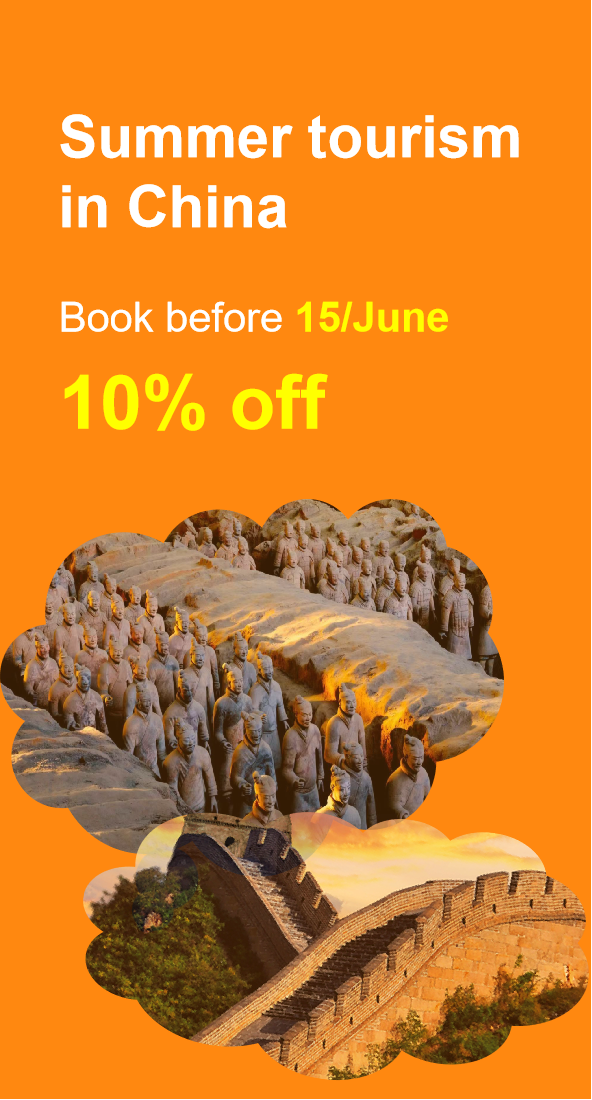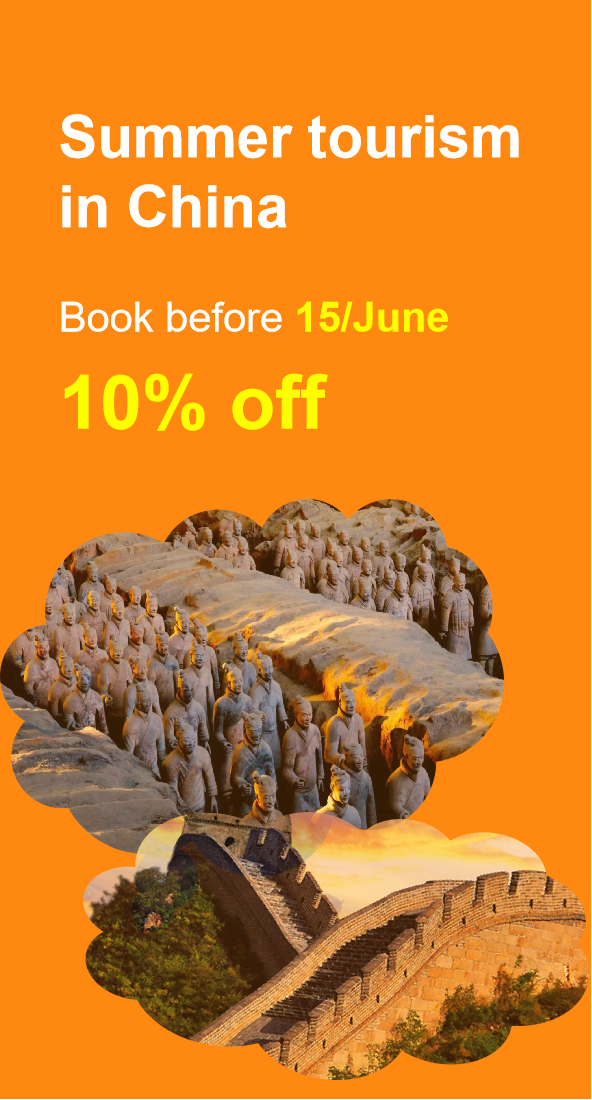
Qixi Festival
Qixi Festival: China’s Celestial Celebration of Love and Craftsmanship

The Qixi Festival, also known as the Double Seventh Festival (Qīxī Jié), is China’s most romantic traditional holiday, rooted in ancient astronomy and folklore. Celebrated on the 7th day of the 7th lunar month, it honors the annual reunion of the mythical cowherd (Niulang) and weaver girl (Zhinu) across the Milky Way. For travelers, Qixi offers a glimpse into China’s poetic heritage, from vibrant temple fairs to intimate rituals celebrating love, artistry, and cosmic harmony. Below, we explore its celestial origins, regional customs, and enduring cultural significance.
 Dates & Public Holidays: A Lunar Rendezvous
Dates & Public Holidays: A Lunar Rendezvous
▶ Lunar Date & Seasonal Significance
The festival falls on the 7th day of the 7th lunar month, typically in August in the Gregorian calendar. This period coincides with late summer, a time when ancient Chinese observed the stars Vega (Zhinu) and Altair (Niulang) shining brightly, separated by the Milky Way.
▶ 2025 Key Dates
· Lunar Date: August 29, 2025 (7th day of 7th lunar month)
· Note: Qixi is not a national public holiday, but cultural events peak nationwide.
▶ Public Holiday Schedule (2025–2029)
|
Year |
Lunar Date |
Gregorian Date Range (Peak Celebrations) |
|
2025 |
August 29 |
August 28–30 (Weekend focus) |
|
2026 |
August 18 |
August 17–19 |
|
2027 |
August 7 |
August 6–8 |
|
2028 |
August 25 |
August 24–26 |
|
2029 |
August 14 |
August 13–15 |
 Core Traditions & Celebrations: From Heavenly Myths to Earthly Delights
Core Traditions & Celebrations: From Heavenly Myths to Earthly Delights
▶ Star Veneration: The Celestial Lovers’ Tale
· Origins: The festival derives from the legend of Niulang and Zhinu, whose love was forbidden by the Jade Emperor. Separated by the Milky Way, they reunite once a year when magpies form a bridge.
· Modern Rituals: Couples pray for marital bliss under starry skies, while singles wish for romantic fortune. Temples dedicated to Zhinu (e.g., the Magpie Bridge Temple in Xi’an) host nighttime ceremonies.
▶ Needlework & Thread-Threading Contests: A Tribute to Zhinu’s Skill
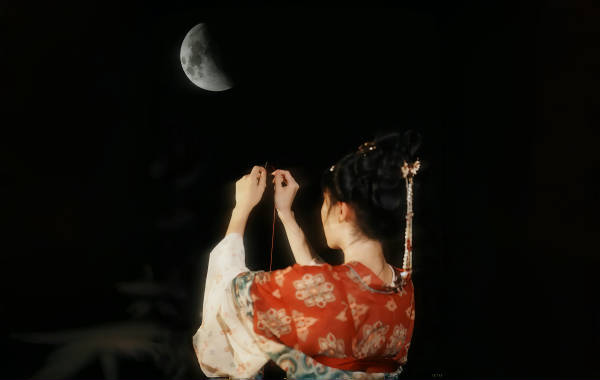
· Symbolism: Zhinu, the celestial weaver, inspires contests where women thread needles under moonlight to showcase dexterity. Success is believed to grant wisdom and marital harmony.
· Regional Variations:
· Guangdong: “Seven Sisters’ Needles” involve threading seven needles with colored threads to create intricate patterns.
· Zhejiang: Girls craft miniature clothing from silk, offering them to Zhinu for blessings.
▶ Qiaoguo (Fried Pastries): A Culinary Love Letter
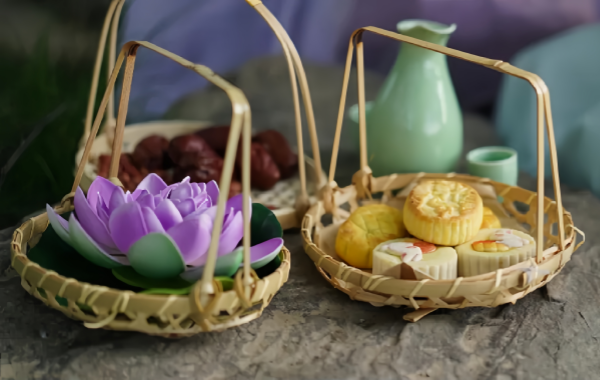
· History: These crispy, flower-shaped pastries symbolize the magpie bridge. Families bake or buy qiaoguo to share, often gifting them to lovers or newlyweds.
· Regional Twists:
· Shandong: Sweet qiaoguo filled with red bean paste.
· Sichuan: Spicy versions with chili and Sichuan pepper.
▶ Magpie Bridge Decorations: Crafting Cosmic Connections
· Symbolism: Paper or bamboo magpies are hung in homes and courtyards to represent the bridge between Niulang and Zhinu.
· Modern Twist: Urban areas use LED-lit magpies for nighttime displays, while rural communities maintain handmade traditions.
▶ Flower Worship: Honoring Zhinu’s Beauty
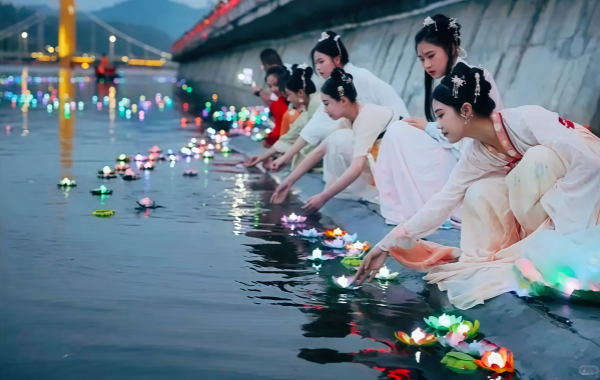
· Ritual: Women offer lotus flowers, jasmine, and orchids to Zhinu, praying for radiant skin and artistic talent. In some regions, girls float flower boats on rivers, symbolizing the release of worries.
▶ The Legends of Qixi: Three Pillars of Romance
· Niulang and Zhinu: The Star-Crossed Lovers
· Content: A poor cowherd (Niulang) marries a heavenly weaver (Zhinu) after stealing her magical robe. The Jade Emperor separates them, allowing reunion only once a year.
· Significance: Embodies enduring love and the balance between earthly hardship and divine grace.
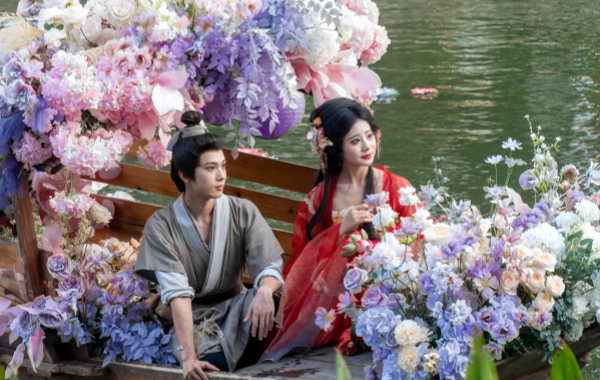
· The Seven Sisters: Celestial Weavers of Fate
· Content: In southern folklore, Zhinu is one of seven sisters who descend to Earth annually. Young women compete in weaving contests to join their ranks in the sky.
· Significance: Celebrates female creativity and the interplay between mortal and immortal realms.
· The Oxherd’s Ox: A Sacrifice for Love
· Content: Niulang’s loyal ox sacrifices itself to provide skin for a raft to cross the Milky Way. Its hide becomes a symbol of selfless devotion.
· Significance: Highlights themes of sacrifice and loyalty in relationships.
 Culinary Delights: A Feast for Lovers
Culinary Delights: A Feast for Lovers
▶ Must-Try Dishes for International Travelers
· Qiaoguo: Crispy fried pastries shaped like magpies or flowers.
· Seven-Treasure Congee: A sweet porridge made with seven types of grains and dried fruits, symbolizing abundance.
· Lotus Root Desserts: Translucent jellies shaped like lotus roots, representing purity and connection.
▶ Symbolic Foods & Their Meanings
· Duck Eggs: Eaten to ward off “loneliness demons,” as ducks mate for life.
· Mulberries: Associated with Zhinu’s weaving loom, believed to enhance creativity.
 Traveling During Qixi Festival: Tips & Destinations
Traveling During Qixi Festival: Tips & Destinations
▶ Essential Travel Advice
· Plan Around Moonrise: Evening events peak after sunset; check local lunar calendars for optimal stargazing.
· Dress Romantically: Many festivals feature hanfu (traditional clothing) parades; consider renting attire for photos.
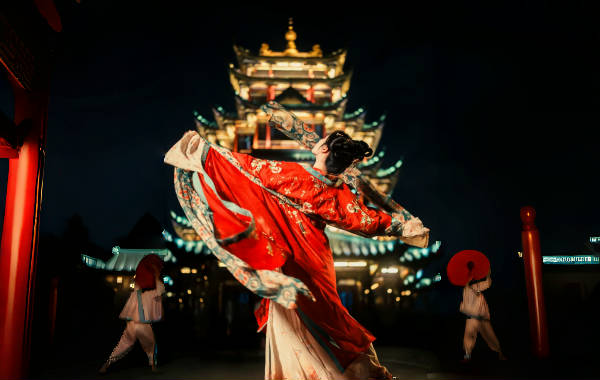
· Crafts: Artisan markets sell handmade qiaoguo, needlework, and magpie decorations—cash is preferred.
▶ Top 5 Destinations for International Visitors
1. Xi’an, Shaanxi:
· Magpie Bridge Temple: Join nighttime prayers under a replica of the celestial bridge.
· Tang Paradise Park: Watch laser light shows retelling the Niulang-Zhinu legend.
2. Hangzhou, Zhejiang:
· West Lake Boat Rides: Cruise under starry skies while listening to folk songs about the lovers.
· Chinese Silk Museum: Learn about Zhinu’s weaving heritage through interactive exhibits.
3. Guangzhou, Guangdong:
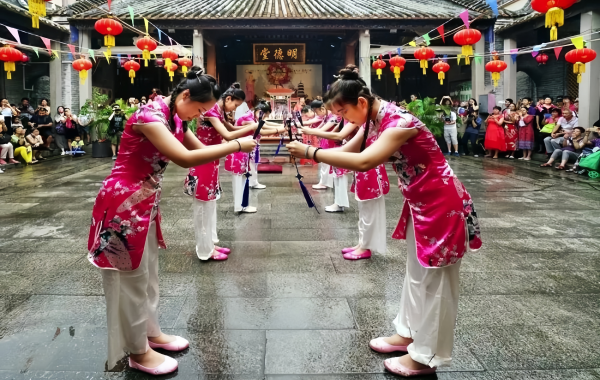
· Chen Clan Ancestral Hall: Attend needle-threading contests and qiaoguo-making workshops.
· Pearl River Night Market: Sample regional sweets and buy magpie-themed souvenirs.
4. Chengdu, Sichuan:
· Jinli Ancient Street: Watch Sichuan opera performances of the Qixi legend.
· Wenshu Monastery: Join monks in lighting lotus lanterns for love blessings.
5. Lijiang, Yunnan:
· Naxi Minority Celebrations: Experience Qixi fused with Dongba rituals, including fire dances and horse races.
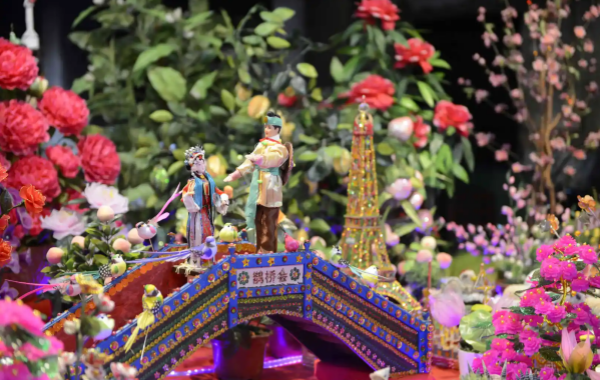
▶ Hidden Gems Off the Beaten Path
· Qixi Village, Gansu: A remote settlement where locals reenact the lovers’ reunion with torchlit processions.
· Shuanghe Town, Jiangsu: Famous for its “Seven Sisters’ Well,” where women toss coins to predict marriage prospects.
· Zhouzhuang Water Town, Jiangsu: Glide through canals under lanterns shaped like magpies and stars.
 History & Cultural Evolution
History & Cultural Evolution
▶ Ancient Origins
· Han Dynasty (206 BCE–220 CE): Early references to “Qixi” appear in texts like The Records of the Grand Historian, linking the date to star worship and agricultural cycles.
· Tang Dynasty (618–907 CE): The festival became associated with romance, with poets like Du Fu immortalizing the lovers’ tale.
▶ Modern Adaptations
· Digital Romance: Apps like Tantan (China’s Tinder) host Qixi-themed speed-dating events.
· Eco-Conscious Crafts: Artisans now use recycled paper for magpie decorations and organic ingredients for qiaoguo.
· Global Reach: Qixi is celebrated in diaspora communities worldwide, from San Francisco’s Chinatown to Paris’s 13th arrondissement.
 Embrace the Celestial Romance
Embrace the Celestial Romance
The Qixi Festival is a poetic blend of myth, artistry, and heartfelt connection. For travelers, it’s an opportunity to witness China’s softer side—whether threading a needle under moonlight, savoring qiaoguo by a river, or marveling at laser shows that bring ancient stars to life. Plan your visit to coincide with local ceremonies, wear a magpie charm for luck, and let the legend of Niulang and Zhinu remind you that love, like the cosmos, is both timeless and ever-renewing. Welcome the Qixi Festival with an open heart—and a camera ready to capture the magic!
What Our Clients Say?
Based on 10,000+ traveler reviews






